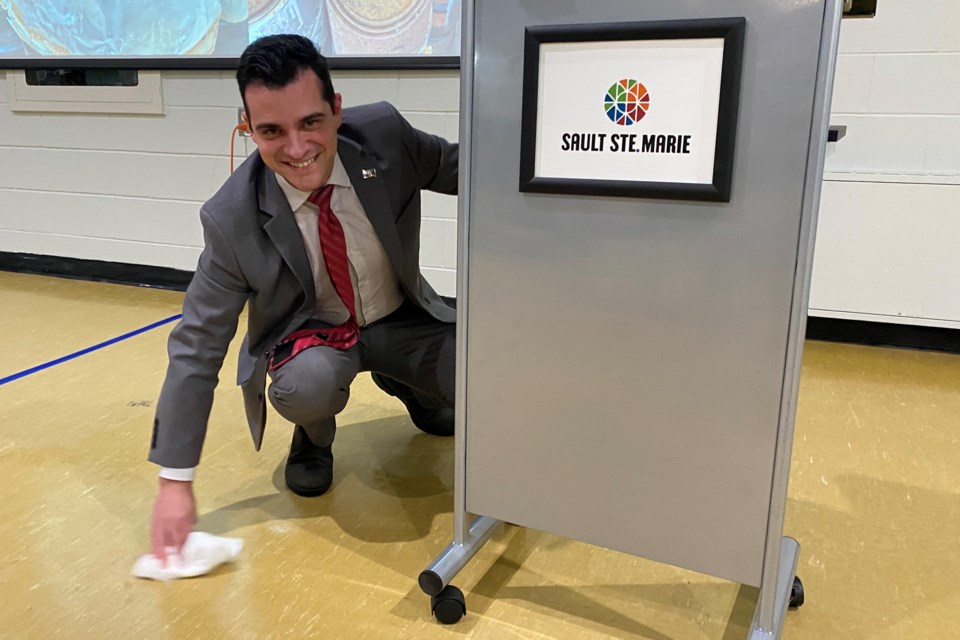Sault Ste. Marie Mayor Matthew Shoemaker is promising to personally introduce at least $780,000 in cuts to a $216-million first draft of the city's 2024 operating budget.
"I recognize the proposed figure is too high for too many residents and businesses to afford," Shoemaker told a poorly attended town hall meeting Thursday at the Bay Street Active Living Centre.
Prepared by city staff mostly to preserve existing levels of municipal services, the preliminary budget proposes $13.5 million in additional spending over last year's budget.
"It is an unacceptable figure, and we will work hard to lower it," the mayor said.
Only about 10 ratepayers turned up at the meeting.
They were vastly outnumbered by city staffers and members of city council, who will hold formal budget deliberations on Dec. 11 and 12.
"At the outset, I want to say to the community that city council will do everything we can to lower the initial proposed levy increase," the mayor said.
"I do think it is important to recognize that the proposed levy increase of 7.2 per cent includes increases in budget requests from the levy and local boards like Algoma public health, police service, social services and others.
"These range from a few per cent, to over nine per cent of their budgets, which all factor into the 7.2 per cent increase we’re here to discuss tonight. Of the 7.2 per cent preliminary increase, the city's operations represent just over two per cent of that number.
"Circumstances continue to put the city in a difficult position. The mental health and addictions crisis is having an effect on most aspects of life in Sault Ste. Marie, and municipal operations are not exempt from that.
"From policing to social services, we're facing major challenges without adequate health care resources from the provincial and federal government, which causes those challenges to land on the municipality’s doorstep. Combined with inflationary pressures, we’ve certainly got our hands full," the mayor said.
"The difficulty of the position we find ourselves in doesn’t mean that the city is going to pass the buck on fiscal responsibility. In fact, I know that it means we need to pursue any avenue to identify savings because residents are dealing with these challenges as well.
"In the last budget cycle, I proposed $780,000 in savings, and I’ll be putting forward proposals to hopefully save even more than that during the upcoming budgetary deliberations."
Malcolm White, the city's chief administrative officer, pointed out that, on average in Ontario, municipal property taxes represent just nine per cent of tax revenues raised in a community.
"All the other taxes represent about 91 per cent. All of that is going to the provincial and federal governments. So they have the funding to fulfill their mandates and we need them to do that," White said.
